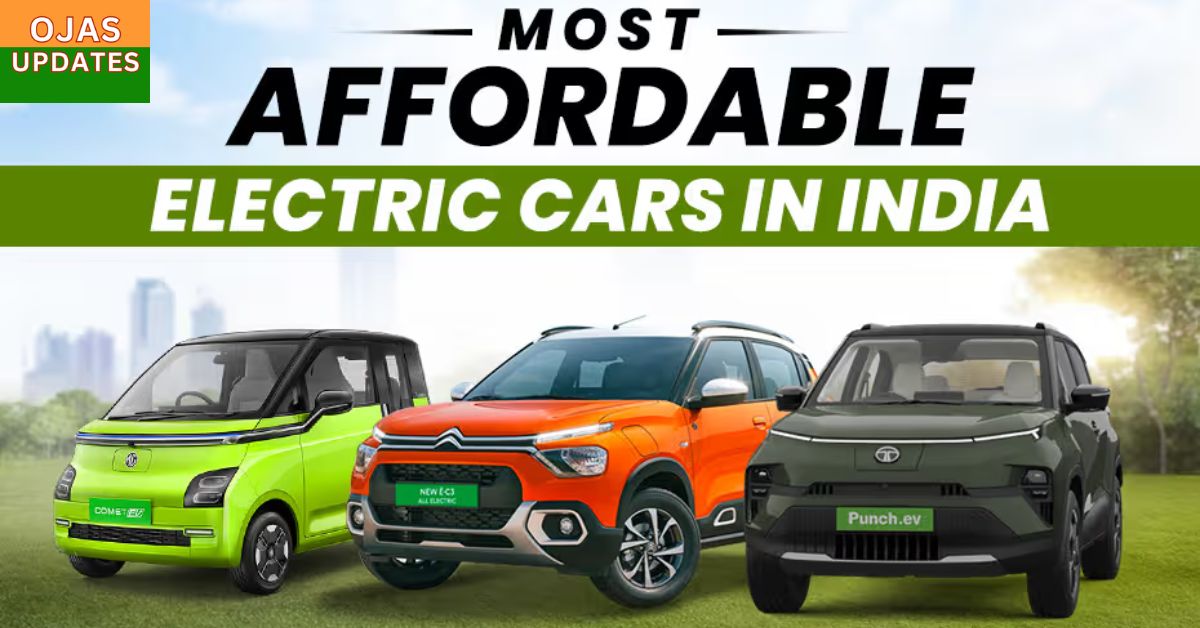India’s automobile industry is undergoing a major transformation as the country moves toward a more sustainable and environmentally conscious future. At the heart of this transformation is the rise of electric vehicles (EVs), especially electric cars. With government initiatives like FAME (Faster Adoption and Manufacturing of Electric Vehicles), increasing fuel prices, and growing awareness about climate change, the demand for electric vehicles has surged significantly in recent years. In response, both Indian and global manufacturers are ramping up their electric car offerings.
Here’s a look at the top electric car manufacturers in India who are leading the charge toward a greener future.
1. Tata Motors
Undoubtedly the frontrunner in India’s electric car space, Tata Motors has played a key role in popularizing EVs in the country. The company has a significant market share in the EV segment, thanks to its affordable pricing, reliable performance, and extensive service network.
- Popular Models: Tata Nexon EV, Tata Tiago EV, Tata Tigor EV, Tata Punch EV
- Strengths: Affordability, Indian-made battery tech, growing charging infrastructure
- Market Position: Tata Motors has consistently held over 70% market share in India’s passenger EV market as of 2024.
Tata’s EVs are known for offering the right balance between price, performance, and range, making them attractive to urban and semi-urban consumers alike.
2. MG Motor India
MG (Morris Garages), a British marque now owned by China’s SAIC Motor Corporation, entered the Indian market with a strong EV strategy. The company emphasizes safety, premium features, and smart connectivity.
- Popular Models: MG ZS EV, MG Comet EV
- Strengths: Feature-rich vehicles, premium build quality, strong after-sales support
- Market Strategy: MG is focused on urban markets and tech-savvy buyers.
The MG Comet, one of the smallest EVs in India, targets city commuters, while the MG ZS EV offers a more premium experience with a long-range electric powertrain.
3. Mahindra Electric
One of the early pioneers of electric mobility in India, Mahindra Electric began its EV journey long before the current EV boom, with the acquisition of Reva Electric Car Company.
- Popular Models: Mahindra e-Verito, Mahindra XUV400 EV
- Strengths: Early-mover advantage, strong research & development
- Focus: Expanding into fleet operations and mainstream consumer segments
The XUV400 EV, a recent entrant, is Mahindra’s answer to the Nexon EV and offers competitive specs and design for Indian consumers.
4. Hyundai Motor India
Hyundai is among the few global automotive giants to introduce electric cars in India early on. The company is focusing on building a premium EV lineup while also expanding its charging ecosystem.
- Popular Models: Hyundai Kona Electric, Hyundai Ioniq 5
- Strengths: Global EV expertise, high-performance vehicles, fast-charging support
- Vision: Hyundai aims to bring more mass-market EVs to India by 2026.
The Ioniq 5, built on Hyundai’s dedicated E-GMP platform, has set a benchmark in terms of design, tech, and performance in India’s luxury EV segment.
5. BYD India
Build Your Dreams (BYD), the world’s largest electric vehicle manufacturer, has been expanding its presence in India aggressively. Though still a niche player in the passenger vehicle segment, BYD is expected to grow rapidly.
- Popular Models: BYD e6, BYD Atto 3
- Strengths: Exceptional battery tech, long-range EVs, robust global experience
- Focus: Premium EV space and B2B fleet partnerships
With its LFP (Lithium Iron Phosphate) Blade Battery technology and a global reputation, BYD is becoming a serious contender in India’s EV race.
6. Citroën India
The French carmaker has made a recent foray into the Indian electric car market, targeting budget-conscious consumers.
- Popular Model: Citroën ë-C3
- Strengths: Compact design, practical features, localized production
- Strategy: Affordable EVs for urban mobility
Though still new, Citroën’s approach of “local production with global tech” makes it a potential disruptor in the affordable EV segment.
7. Maruti Suzuki (Upcoming)
India’s largest carmaker has been cautious in its EV approach, but it has confirmed plans to launch its first EV — likely an SUV — in 2025.
- EV in Development: Maruti eVX (concept revealed)
- Strengths: Unmatched dealer and service network, affordability
- Impact: Expected to democratize EV adoption in smaller towns and rural areas
Once Maruti enters the EV market, it could potentially shift the scale and pace of EV adoption across the country.
Conclusion
India’s electric vehicle journey is just getting started, and the competition among carmakers is heating up. While Tata Motors currently dominates the space, players like MG, Hyundai, Mahindra, and BYD are pushing boundaries with innovative offerings. Meanwhile, upcoming entrants like Maruti Suzuki are expected to make a significant impact.
For consumers, this means more choices, better technology, and competitive pricing in the near future. With government support, improved charging infrastructure, and a growing environmental consciousness, India is well on its way to becoming a global hub for electric mobility.

